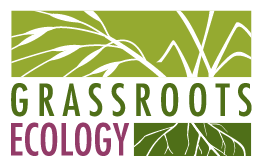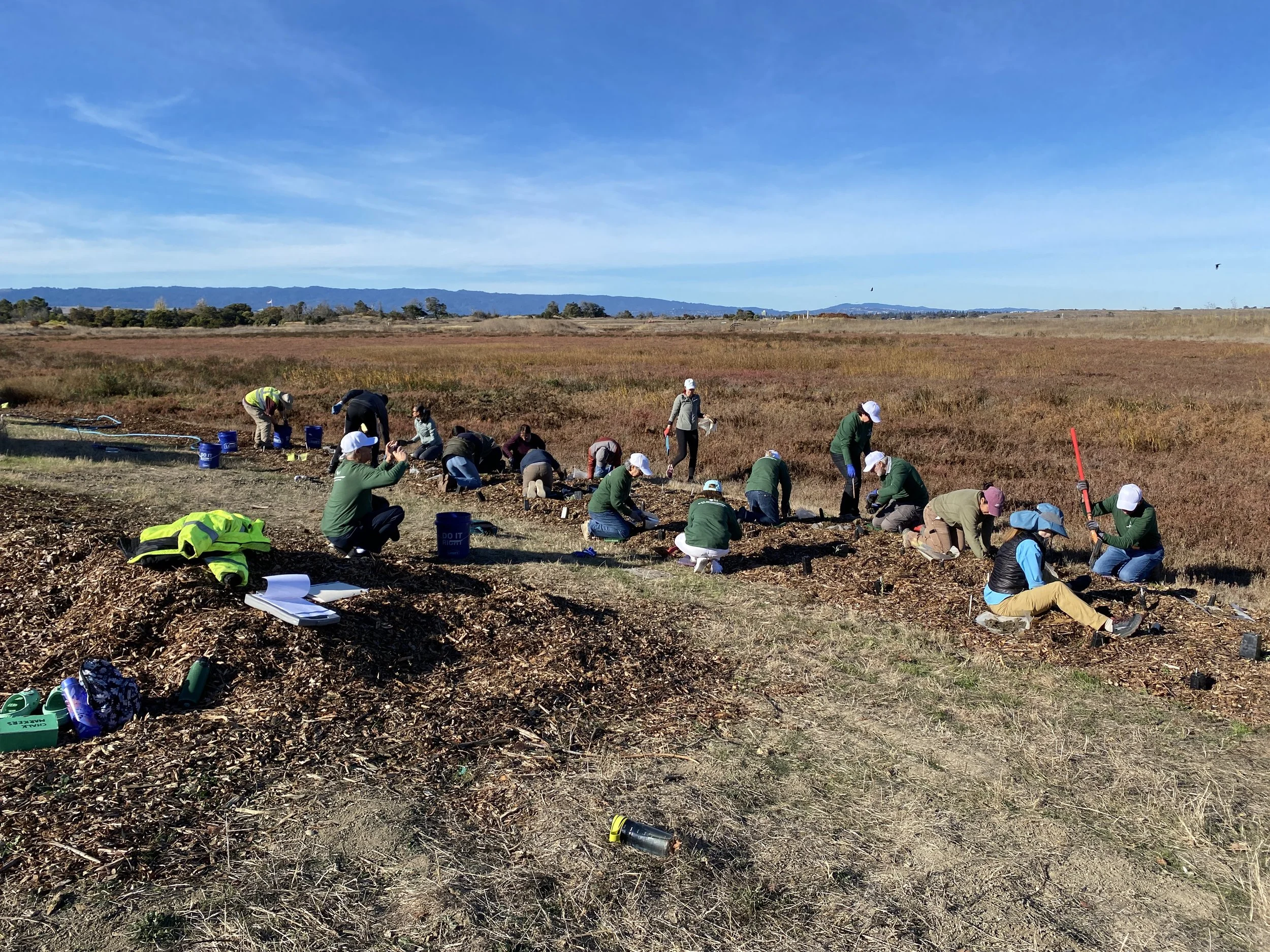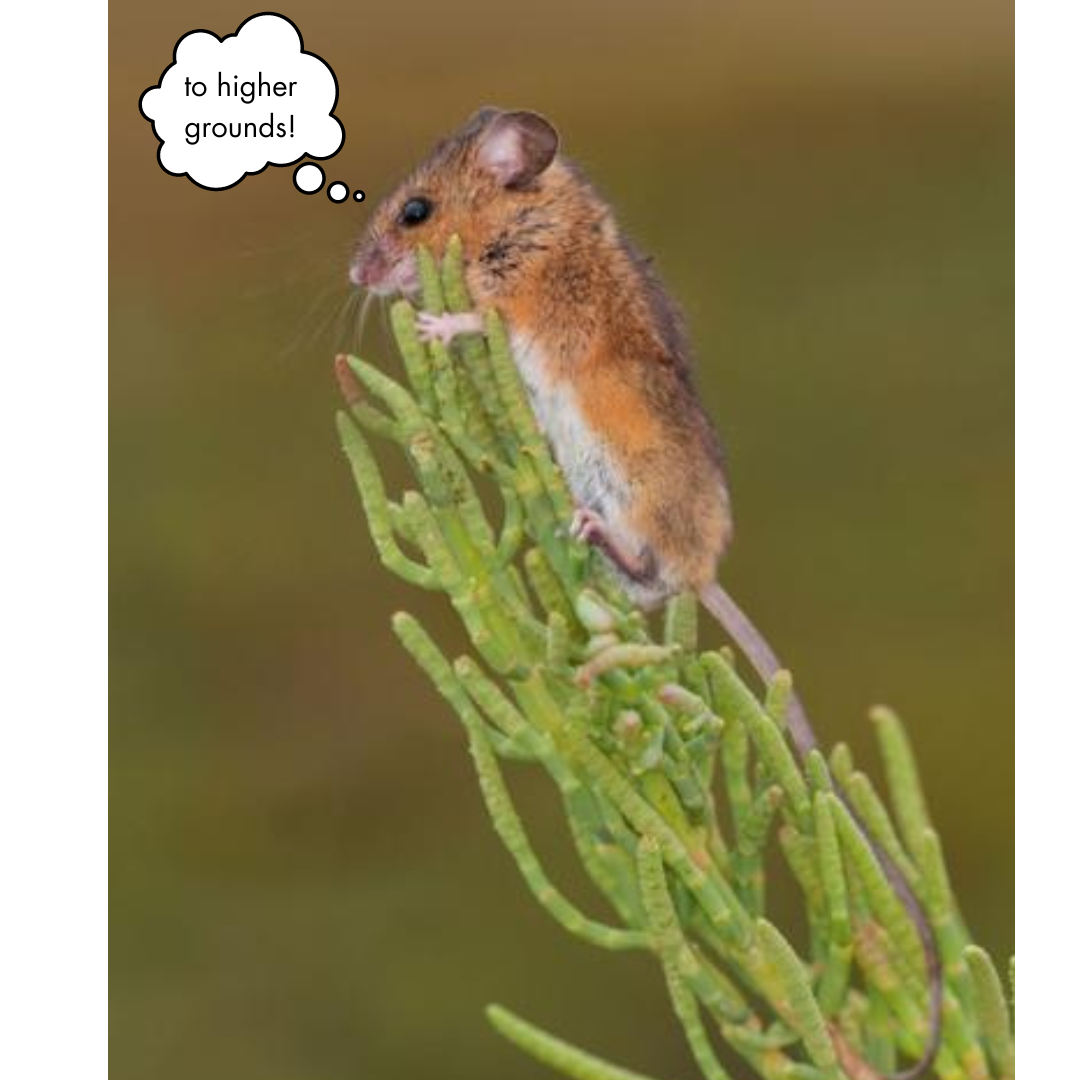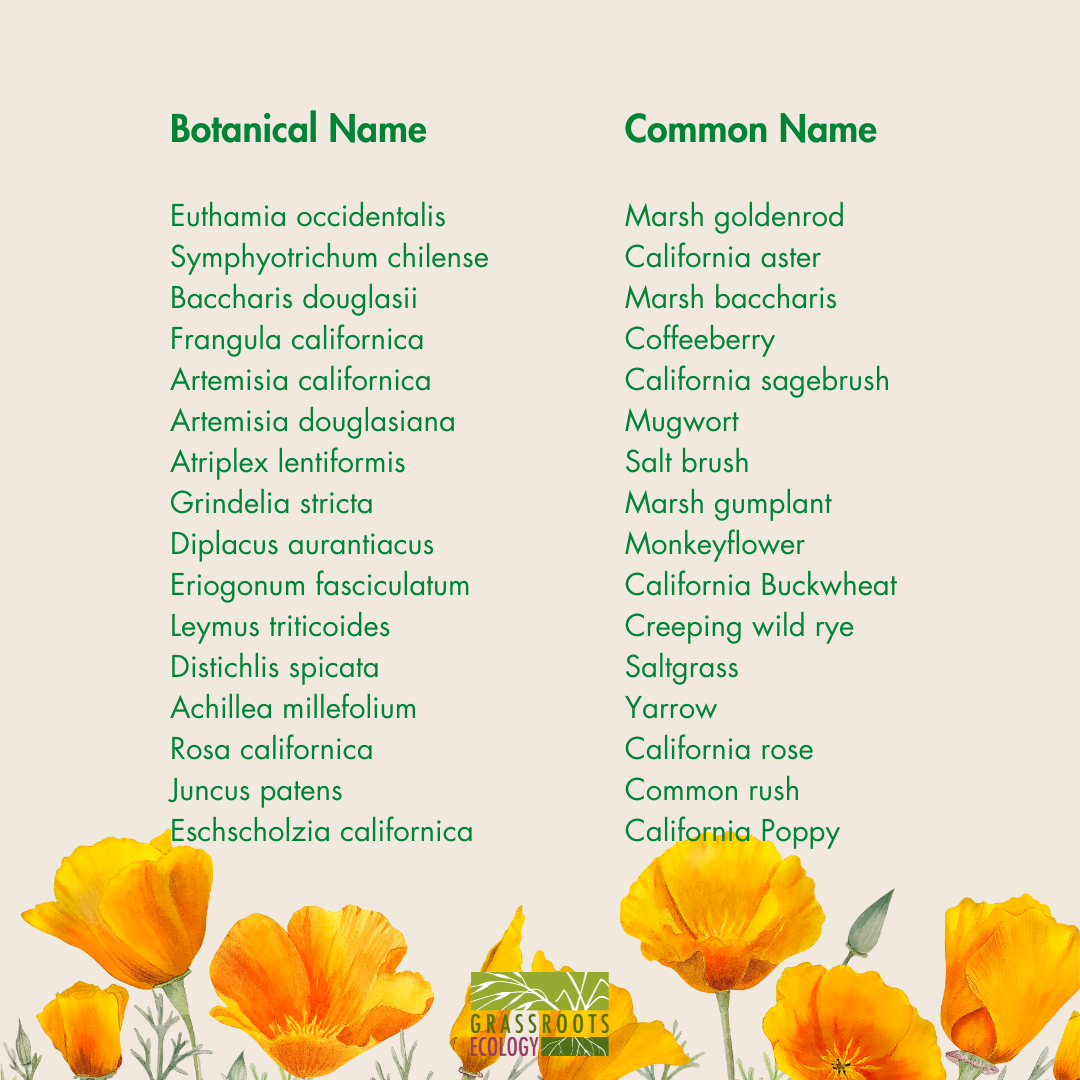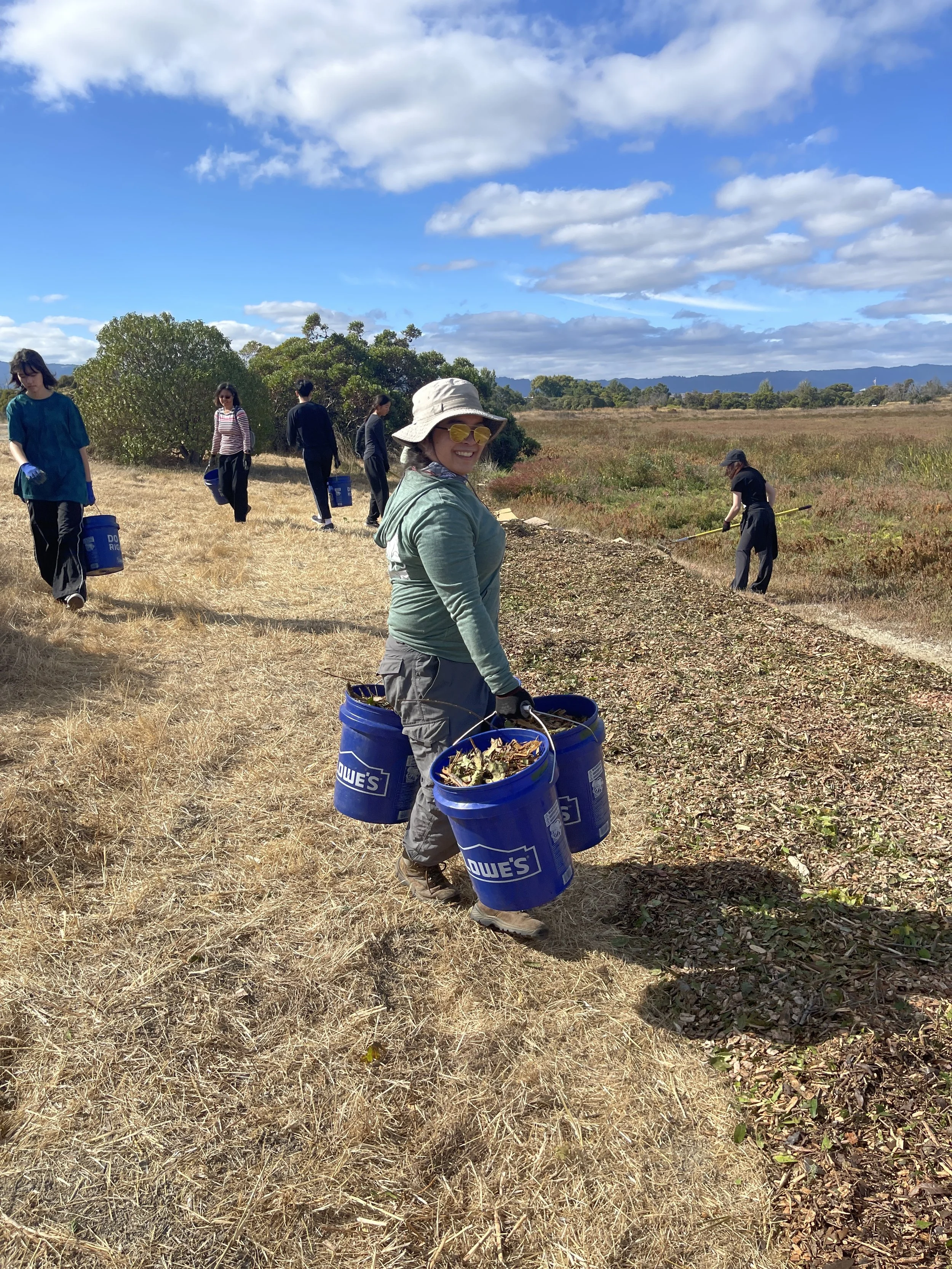Grassroots Ecology starts tidal marsh restoration in Shoreline at Mountain View!
/Some of you may know Shoreline as the place to see live music at the amphitheater or where you catch a movie at Century 16. Or maybe it’s where you fly kites or walk along the trails looking for snowy egrets and black skimmers! At Grassroots Ecology, we know Shoreline at Mountain View for its rich ecosystem and the tidal marsh habitat that is home to a diversity of plant and wildlife species.
With support from the City of Mountain View, in 2023, Grassroots Ecology was awarded a four-year Valley Water, “Safe, Clean Water and Natural Protection Program” grant for the Mountain View Tidal Marsh Restoration Project.
This project builds on a previous restoration project funded by Valley Water that we conducted on Permanente Creek from 2016 to 2019 with the City of Mountain View and the help of hundreds of volunteers. There, we reintroduced a dense mosaic of California native plants—large patches of coyote brush, California rose, and marsh baccharis—to attract pollinators and home wildlife along the creek. Now, we are working closer to the bayshore to restore the marsh-upland transition zone along the Bay Trail between Permanente and Stevens Creeks.
This project will leverage the power of dedicated volunteers in the neighboring communities of Mountain View, Santa Clara, Milpitas, San Jose, Sunnyvale, Los Altos, and Palo Alto. Together, we will restore critical tidal marsh habitat in an ecotone located between salt marsh and grassland. Join us?
Salt marsh harvest mice get everything they need in the salt marsh: They eat seeds and stems of plants, especially pickleweed, and can even drink saltwater! These mice build their own or borrow abandoned bird nests in pickleweed or bulrushes. To cover from predators, they need plants in the higher, drier land, next to the salt marsh so they can hide from predators (like hawks) during high tide. Their top threat is habitat loss!
Who are we restoring habitat for?
The restoration project will focus on enhancing native vegetation and refugia, especially for two federal and state endangered species, the Ridgway’s rail bird and the salt marsh harvest mouse, both creatures who need vegetative cover from predators when they move upland during higher tides.
Presently, there are over 20 protected wildlife species that have been observed within and adjacent to Shoreline due in part to a mosaic of different habitats located within Shoreline! This includes the Western burrowing owl who is currently on our state’s species of special concern list.
In addition to creating healthy habitat for local wildlife, we are excited about the possibilities this new site has for community members to connect and get to know Shoreline in a whole new light.
Yayy, more plants = more bugs! More bugs = more food!
During volunteer workdays, participants can learn about the local species, the tidal marsh ecosystem, and why marshland restoration is important for both wildlife and us, humans.
Our field staff loves sharing how to identify native and invasive plants and why specific species are helping—or damaging—the ecosystem. So when you’re out there with us, don’t be shy to ask! We hope you’ll leave with a better understanding of how to continue supporting these ecosystems. Or maybe you’ll gain the skills to create your own native plant garden, if you haven’t already!
What activities are involved in this habitat restoration?
Our habitat restoration activities include removing invasive plants (such as yellow starthistle and stinkwort), trash-cleanup, and installing and maintaining watershed-specific native plants that are grown at our Native Plant Nursery from propagules hand-collected from the local Permanente Creek watershed. Maintaining the plants is an ongoing process and we need all hands on deck! This looks like weeding, watering, pruning and sheet mulching to ensure successful plant establishment.
Wonderful volunteers sheet mulching and planting in action!
What’s native species will Grassroots Ecology be planting?
A sample list of plant species we anticipate growing for the project.
Grassroots Ecology will base the plant palette on plant species that support the avifauna (birds specific to a region) who use the marsh transition zone, zone-specific requirements such as salt tolerance and soil type, and plant species’ ability to compete with the non-native weeds and to self-propagate.
During volunteer workdays, we invite you to join us outside to help these California native plants flourish! Besides planting, weeding, picking up trash, our other restoration activities include community science events to document organisms occurring in the restoration area (coool!). In fact, on Saturday April 27th, 2024, we will be hosting a “Bioblitz” at Shoreline! We welcome volunteers with any level of experience to participate in the Bioblitz. By participating, you will be helping the science community collect valuable data about Shoreline’s biodiversity. (Plus, it’s pretty fun!)
Where exactly is the restoration site?
Shelley on site!
Be sure to check the event description for the location because you may notice some coordinates along Bay Trail from our Mountain View project lead Shelley Pneh (navigator mode activated!). Drop those coordinates into your smartphone (or if you prefer the OG method, dust off your paper map - jk!) and we’ll see you there.
Inspired by our mission to restore the marsh habitat, enhance beauty and biodiversity, and protect endangered wildlife at Shoreline?
As a grassroots organization, every bit of support from the community—whether it be time or pocketchange—truly makes a considerable difference in the amount of habitat restoration we can get done from sun up to sun down.
If you’re reading this - you’ve likely already joined us for a workday or contributed to making our mission a reality, so thank you!! We couldn’t do it without you.
By Katarina La Poll, Communications Coordinator
Sources:
Alex Von Feldt and Junko Bryant, Grassroots Ecology, Co-Executive Directors
Deanna Giuliano, Grassroots Ecology, Nursery Director and Botanical Consultant
Kristen Williams, Grassroots Ecology, Habitat Restoration Director
Santa Clara Valley Water Distric
Shelley Pneh, Grassroots Ecology, Ecologist II
The City of Palo Alto Public Works—Watershed Protection
